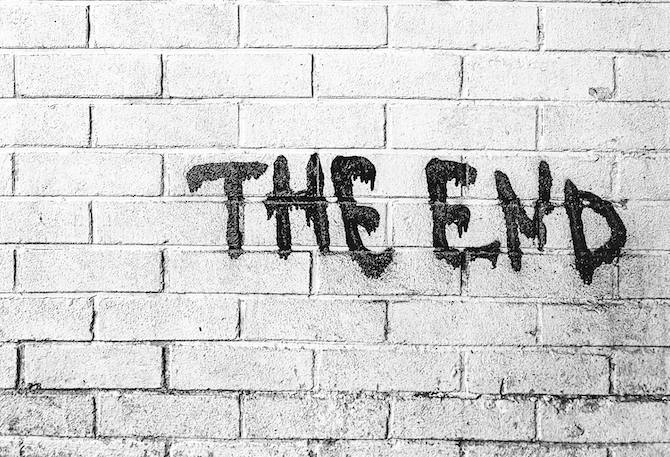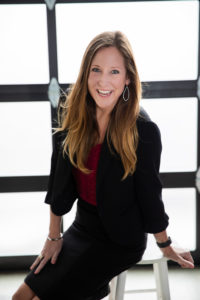After a month of searching for survivors and victims, a few days ago, local authorities identified the remains of the final missing person which confirmed the final death toll of the disaster at 98. The death toll includes 97 people whose bodies were recovered and one victim who died shortly after the collapse.
A sad, sad story devastating and touching many families, including a dear college friend of mine who lost her aunt and uncle.
But unfortunately, I believe this is NOT the end of the story… this is just the beginning… as officials from likely all levels of government as well as independent organizations will begin a race to investigate and attempt to determine the cause of the collapse.
Immediately, questions have been raised about structural issues, building safety issues in general, and all types of potential applicable regulations. In fact, shortly after the collapse, it was reported that specific earlier warnings of “major structural damage” about the structural integrity of the condo had gone unheeded.
But here’s the thing…
The condo disaster brings to my mind a few other disasters:
- The 1986 explosion of the NASA Challenger space shuttle killing seven crew members.
- The 2010 BP Deepwater Horizon oil rig explosion killing 11 workers.
- The decades of GardaWorld armored truck crashes killing 19 (and probably more) innocent victims.
- The 2018 and 2019 Boeing 737 Max airliner crashes killing 346 passengers and crew.
- The decades of false advertising and aggressive marketing of opioids by Purdue Pharma (and others) killing approximately 760,000 patients (so far).
So the question is…
What are the common elements of the failures of previous disasters and likely failures related to the FL condo?
In my recently published book, Becoming The Everyday Ethicist, I outline “Seven Deadly Ethical Sins” that are found in organizations that inevitably lead to one type of disaster or another.
Many of the “sins” were apparent in the Challenger, BP, GardaWorld, Boeing, and Purdue Pharma cases… and most likely in this Florida condo case as well…
Sin #1 – “Deny and Deflect”
When problems are initially observed, instead of honestly, seriously, and promptly determining and taking appropriate corrective action, there is denying of any wrongdoing. And often there is deflecting the issue onto another party.
Example? Boeing blamed “pilot error” instead of the real issue of flight software, poor safety monitoring, and lying to regulators.
P.S. I equate this to the original deadly sin of PRIDE.
Will we continue to let these companies have too much PRIDE in their profits and DENY & DEFLECT their behavior?
Sin #2 – “Disingenuous Leadership”
During times of stability OR crisis, there are those in critical leadership positions who talk a lot about values but proceed very obviously to not “walk the talk.” They do not put the necessary commitment, resources, and processes in place to support their (supposed) values. They put revenues and profits over the health and safety of stakeholders and often they get angry when accused (rightly) of any wrongdoing.
Example? BP. Just watch this clip from the 2016 file “Deepwater Horizon.”
P.S. I equate this to the original deadly sin of WRATH.
Will we continue to let these DISINGENUOUS LEADERS get away with their WRATH?
Sin #3 – “Move Fast and Break Things”
Organizations often are so motivated to be the first to market or seeking a competitive advantage motivated by profits, that there is a failure to think of the potentially deadly consequences.
Example? Garda World, whose trucks have killed at least 19 people in recent decades. Check out this video or read the Tampa Bay Times article, “Moving Millions, Leaving Mayhem” to hear more.
P.S. I equate this to the original deadly sin of LUST.
Will we continue to let these companies LUST to beat out the competition or grow by MOVING FAST AND BREAKING THINGS?
Sin #4 – “The Smartest Guys in the Room”
Leaders with a lack of integrity, total arrogance, limitless greed, and a disregard for any or all stakeholders but themselves.
Example? Well, of course this is the mentality that killed Enron. But, look closely at those BP company men, those GardaWorld, Boeing, or Purdue Pharma executives, or those NASA supervisors that ignored the warnings of the engineers, and I believe you will agree that this mentality has led to the deaths of too many.
P.S. I equate this to the original deadly sin of GREED (of course).
Will we continue to ignore the GREED emanating from the SMARTEST GUYS (OR GALS) IN THE ROOM and hurt innocent employees, customers, and communities?
Sin #5 – “The Attorneys and Auditors Approved It”
Let’s face it, attorneys and auditors are paid by the clients they are serving. They become conflicted – looking for loopholes and putting their clients’ interests above those of stakeholders to the organizations. They lead organizations down the path of “it is legal,” instead of “it is right.” Just ask Andy Fastow, the former CFO of Enron. I mean, he was “following US GAAP” and the “auditors signed off”…
Another example? The German FinTech company, Wirecard. Just check out this NY Times article, “In a German Tech Giant’s Fall, Charges of Lies, Spies and Missing Billions.” Or better yet, read what this Promarket article has to say about the auditors, EY. (Were they “expressly corrupt?” “Simply incompetent?” Or my favorite, “Culturally Conditioned” to look away from client malfeasance? Just wow.)
P.S. I equate this to the original deadly sin of GLUTTONY.
Will we continue to ignore the GLUTTONY of organizations that say THE ATTORNEYS AND AUDITORS APPROVED IT and completely ignore the ethical implications?
Sin #6 – “Everybody Does It, So It Must Be OK”
EVERYONE uses aggressive sales tactics…. says the sales representatives and executives at pharmaceutical companies. EVERY doctor has to prescribe medicine… why not take the favors, gifts, bribes, or kickbacks (I call them FGBK’s in my ethics book) from the manufacturers and distributors and try them all out?
(Did everyone build buildings the same way, with the same concrete, same steel reinforcements, and same engineers signing off – so that makes not listening to the warnings okay?)
My favorite example? Purdue Pharma. Richard Sackler is the poster child, I mean poster CEO, of needing to beat out the competition. In fact, check out this Washington Post article that quotes Sackler saying this:
“The launch of OxyContin Tablets will be followed by a blizzard of prescriptions that will bury the competition… The prescription blizzard will be so deep, dense, and white.”
P.S. I equate this to the original deadly sin of ENVY.
Will we continue to allow ENVY among individuals and organizations and the use of the excuse EVERYONE DOES IT, SO IT MUST BE OK?
Sin #7 – “Everything is Grey”
Instead of looking for the honest truth, we have “a reluctance to work or make an effort; laziness” (just one definition for the word sloth). We decide that the ethical decision is just TOO HARD to make (oh boy, another great Mark Zuckerberg quote/article), so the defense becomes that it was a grey area with no clear, “right” solution.
Another example? Just watch the trailer, or better yet, the full Netflix series called, “Challenger: The Final Flight.” Even still today, some of those involved in the launch cite it was “grey” whether they should have made the decision to launch. While I get that hindsight is 2020, foresight of the engineers closest to the shuttle should have been listened to. It is just that black and white.
P.S. Yep, you guessed it, I equate this to the original deadly sin of SLOTH.
Will we continue to be SLOTHS when it comes to our ethics and pretend like EVERYTHING IS GREY?
So…
What’s my advice?
Investigators need to search for the “Seven Deadly Ethical Sins” when determining what went wrong in Florida condo disaster. I am guessing they will find more than one present. Then all involved need to ensure steps are taken to eliminate these sins going forward.
And lastly, and more importantly for the future of our society, we ALL need to make sure our organizations are not falling for one or more of the Deadly Ethical Sins.
We may just prevent a disaster in the making.
CHECK OUT THIS NEWS!
Jo JUST launched a new CPE Program with all of the above information and MORE entitled, you guessed it, “The Seven Deadly Sins of Organizations.”
This program is excellent for executives, finance or operational leaders, and auditors (internal or external).
Email Jo to book this CPE Program TODAY! Jo@AuditConsultingEducation.com
Amanda “Jo” Erven, CPA, CIA, CFE, is the President and Founder of Audit. Consulting. Education. LLC. After a successful career in external/internal audit and accounting, Jo is now an active Internal Audit Strategist, Management Consultant, Higher Education Professor, Author, and Trainer/Speaker, providing Continuing Professional Education (CPE) hours, live and virtually, to organizations across the globe. Jo’s motto says the most about her personal and professional outlook: “Good things come to those who wait… but don’t. You deserve better than good.” Every one of her books and presentations focuses on that proactive stance, and how we can immediately connect our actions to our values.


